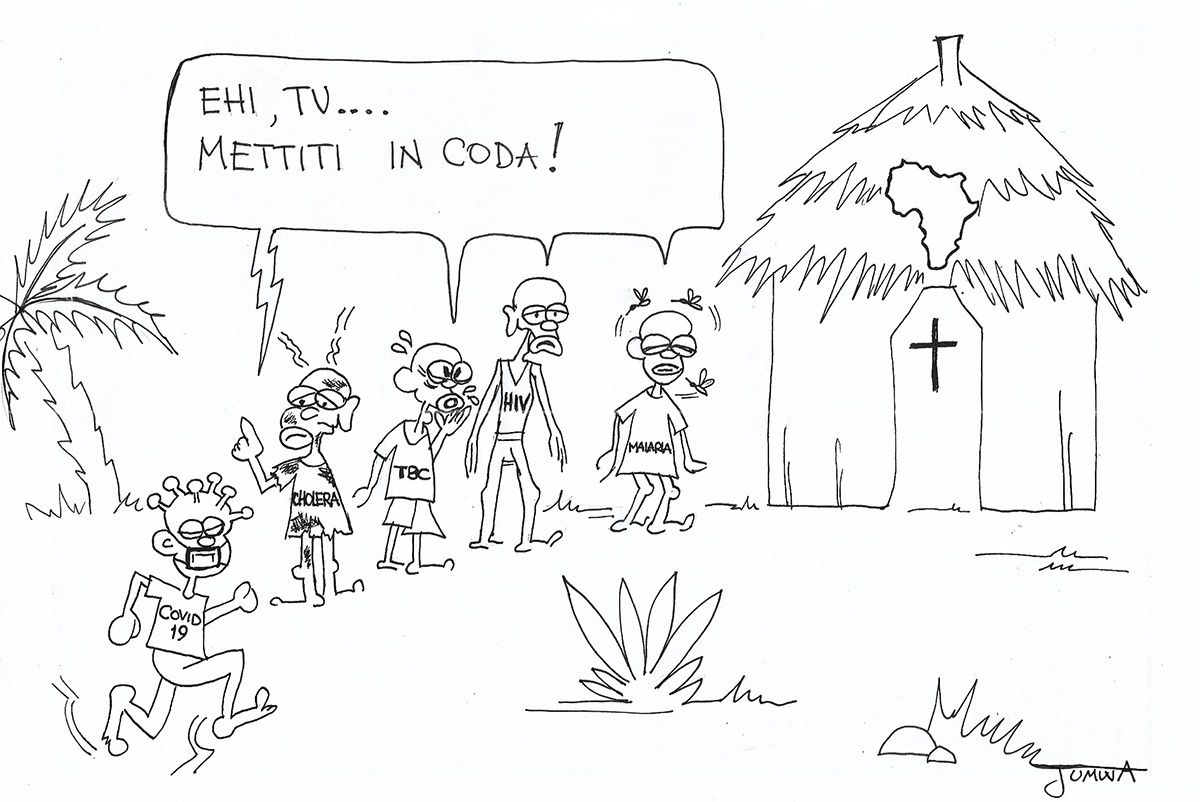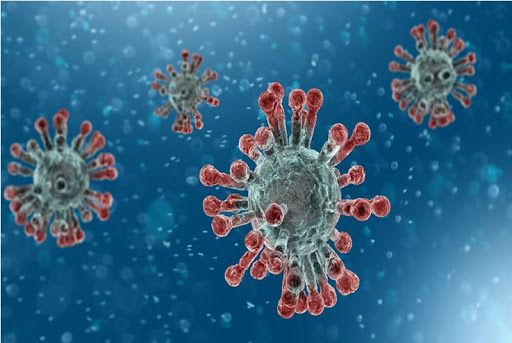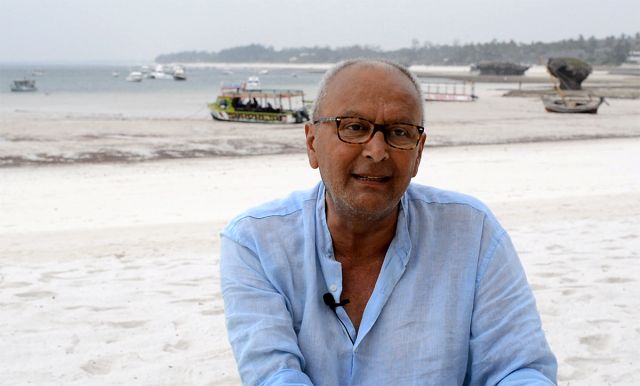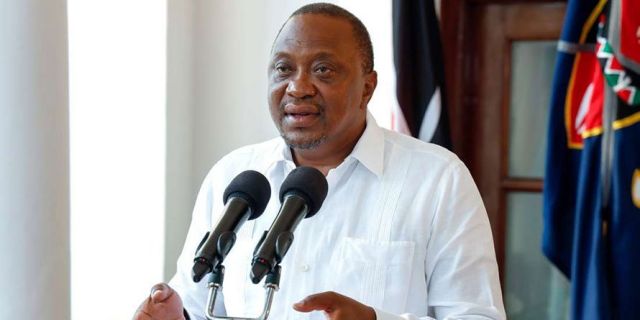
EDITORIAL
31-03-2020 by Freddie del Curatolo

The truths of Africa are always uncomfortable, unknown to most and even to many Westerners who do not live it at 360 degrees, that is, in its deep, miserable and painful folds and at the same time frequent and interact with the upper classes and wealthy, from the middle class, to representatives of the institutions up to the same oligarchies that govern the countries.
The truths of Kenya are difficult to assimilate, especially in times like these when truth is already a subjective fact in itself and everyone, every day, can acquire them in the net for free.
I will never tire of paraphrasing Ryszard Kapuscinski: even Africa, in reality, does not exist, let alone its truths.
If there were certainties, in this place that moves and runs "to the day", like the famous gazelle of the proverb, they would surely be completely different from the first ones we can think of.
The great Kenyan writer Binyavanga Wainaina proposed barges of clichés about Africa using which you can never be wrong, just as everything is more credible using that subdued tone halfway between resignation, invective and indignation.
Africa is to be pitied, adored or dominated," he wrote, "but whatever point of view you choose, make sure you give the impression that without your intervention Africa would be doomed.
The certainties propagated by the media and presumed connoisseurs of the continent these days are no exception: "the virus will come and it will be a massacre", "Africa is not prepared", "the economic crisis will add hunger and despair to the contagion" and so on.
Then there is the "hunt for the white man", as a form of retaliation and in the end the police will kill more of them than Covid19.
All this can be, of course; those who shoot more are more likely to hit the target.
The fact remains that many of those who now dispense these wisdom quotes, until yesterday wrote that the virus would not withstand the heat, that non-Europeans in Europe do not take it "and so rest assured" or even that the malaria medicines or the natural medicines of sorcerers would protect them naturally.
Not to say of whom, when in Italy the contagions were counted on the fingers of the hands of a farmer from the Lodi area, sipping a spritz, he pointed his finger at Kenya because "with all those Chinese it will be infected in a short time".
Instead, the truth of the numbers, of the data, the irreproachable ones because they speak of hospitalizations, of beds occupied in the very few (less than a thousand) intensive care units in Kenya, they say that the virus brought him here (from Europe and America, of course) especially the Kenyans and they spread it by refusing to stay in quarantine.
Then the defenders of the curfew and the police beatings to enforce it are revealed. And here the truth becomes uncomfortable, even counterproductive for those who want to write and describe the reality of this country. You defend certain choices and steps as a dictatorship fanatic, you understand extreme methods and you are inevitably racist.
When I arrived in Kenya I was just over twenty years old and all the most colorful and brilliant ideas in the world. Dreams, hopes, ideals.
But they were all almost all going in one direction.
Living in Kenya, I realized that if you only go in one direction, you get lost.
And that if you have few ideas but fixed ideas, you are more useless and out of place than a savannah buffalo with a degree in pure mathematics, as De André would have said.
So I saw the Kenyan schools, where the teachers beat you with sticks since the first class, as they did in our schools until a few decades ago.
I saw priests and pastors inciting the faithful to punishment against thieves and liars, instead of inviting them to turn the other cheek.
Families from villages outside Malindi put a bicycle thief inside a pile of truck tires and set him on fire.
One day the Chief of Police asked me to hurry to the station in my Land Rover, because the only vehicle the officers had was broken. I drove for them and we went to arrest a man who had raped the wife of a former colleague.
Once the cops had loaded him into the truck, people in the neighborhood started throwing stones at the criminal's address, hitting an officer and causing a lot of damage to the car.
I've seen insubordination treated like that on both sides all my life.
In this we have changed (and then see our law enforcement agencies venting maybe secretly, even out of frustration and often with brutal results), but they have not.
The sticks are also supplied to the police and those who disobey them know that they will be used against them. In addition to the images (disgraceful, for goodness sake) that are circulating these days, of violence against women who lingered at Likoni's ferry in Mombasa or the homeless in Nairobi, there are many truckers who are clearly guilty of the crime who, silently like disobedient children or confessed offenders, suffer the whipslash and can't wait to get behind the wheel again and, crying, tell themselves how much of an asshole they were or how much of a bastard their employer was who told them "go, go ... you'll see that nobody catches you, here's the overtime".
Even in the Municipality of Malindi, they told me that for those who were born and live here the reactions of the police are always the same, indeed ... perhaps in the days of President Moi were even worse. This doesn't justify anything or anyone, but it must serve as an example to those who don't know Africa and to the many readers who have replaced their memory with a 32 giga mobile phone card.
As for Covid19, there are even fewer truths and the future is written every day as if this emergency was born for Africa.
However, the previous situation of the Continent speaks clearly, the Crown is only the latest arrival and if you put the spotlight on it and its possible incidence here it is only because the topic is terribly fashionable.
In Kenya there are almost 1 million HIV-positive people who have only had access to fairly inexpensive treatment for a few years now. How many do they even write sporadically?
More than 100 thousand people a year die of malaria, respiratory diseases and tuberculosis are the leading cause of death.
At Kilifi County Hospital alone (a figure reported by national newspapers such as Standard and Kenyans) about 20 children have died from asthma and bronchial problems since the beginning of the month.
And in their huts they continue to burn paraffin for lighting and coal for cooking. In the north and around Lake Victoria cholera still claims victims, it always seems to be eradicated but it comes back after every rainy season and so on.
Mr. Corona, as they call him here, has already lined up and if he should find the closed door of Casa Africa, it is only because all the other bearers of daily death, silent, inexorable as certain truths that one is ashamed to pronounce, have already occupied all the rooms. This does not mean that we should not try to face the new emergency in every way, and it does not seem a paradox.
But taking refuge in the clichés of "it will be a massacre because you can't fit 10 people in a mud hut" is useless and brings us back to the words of Wainaina: if we continue to see Africa with our eyes as "Western saviors", however good-faith and certainly benefactors, we will never understand anything.
Those who were born in a hut are undoubtedly used to living there and also feel lucky, compared to those who do not have one or have a shack made of sheet metal. The huts of the families, in the villages, are bigger than those studios that in Milan people from Sri Lanka, Senegal and Peru divide into six or seven, the problem of poverty does not begin to arise with "social distancing", just as the appeals of those who make an entire Malindi or a Watamu Africa are desperately provincial. Take a plate of polenta and beans to that hut, and you'll see how they are at home, even three feet from each other.
What's the use of tapping your fingers in bulk on the keyboards, if not to give the usual stereotypical image of Africa, so beautiful but so exploited depressed and hated as Rino Gaetano's only son brother?
Isn't it better to stay silent and start moving, like our compatriot who has transformed a bed & breakfast into a tailor's shop to sew masks or like those who are preparing to set up hotels, stadiums, schools and factories to accommodate citizens who can lie at the right distance from each other?
Act, or at least understand, suggest and organize accordingly.
Otherwise, please stick to the cold chronicle (because Kenya, in particular, who knows why it always makes the news) as serious journalists do, or use your breath to raise awareness through all channels to get indignant, polemic and take it out on governments, customs and ancestral abuse.
Now is not the time.
This is Africa and with all the wild animals and felines that populate it, squawking has never brought too much luck.
BOOKS OF KENYA
by redazione

Since 2008 we have been collecting, after reading and reviewing them, the books on...

How far is the Coronavirus spreading on the African continent? How are governments reacting? What...
MAL D'AFRIQUE
by redazione

This space is dedicated to all the people who had to do with Kenya, on holiday, for job, guests of a friend, for voluntary service or by any other voluntary or unintentional chances, and who experienced so much the magic...
NEWS
by redazione

The African Centre for Disease Prevention and Control will be established in Kenya.
This...
INTERVIEW
by Freddie del Curatolo


Within two weeks Kenya, like much of the rest of Africa, will be able to test for...
NEWS
by redazione

Kenya's President Uhuru Kenyatta has signed a directive to fight the coronavirus in his country. The statement issued by ...

Since Kenyatta's proclamation, three days of calm have followed in the country, which have brought cautious optimism and already signs of recovery throughout Kenya.
The majority of citizens...